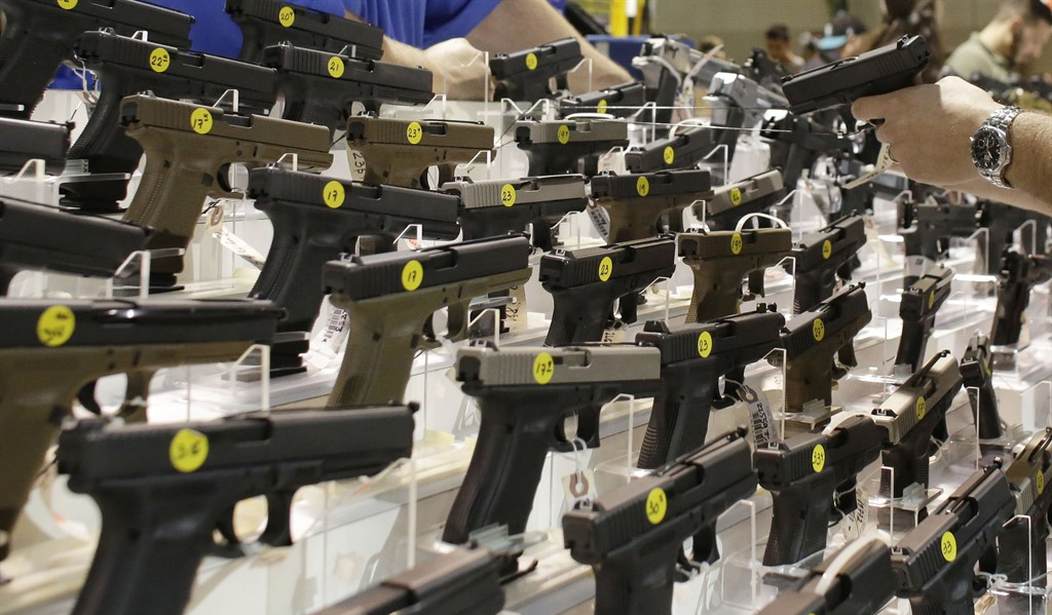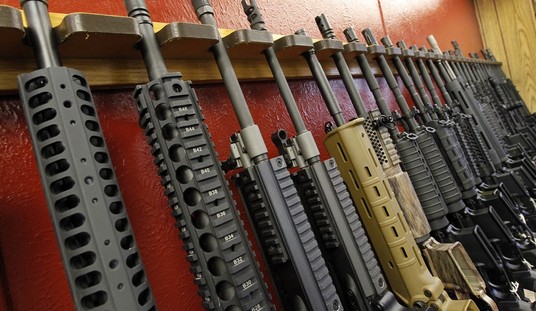Gun tracing is a common thing law enforcement does when looking at a murder weapon. Local police ask the ATF for information and the ATF tracks down the gun sale. Most of the time, the gun hits a dead end. The person it was sold to often reports that the firearm was stolen from them years before.
However, that’s not always the case, and a report from Mississippi shows the other side of those dead ends.
Malcolm Stuckey was pulling up in a burgundy Pontiac Grand Prix to his friend’s birthday party in Chicago’s once-prosperous Englewood neighborhood when a bullet fired from a gun, bought 840 miles away in Mississippi, tore into his brain.
His killing in 2014 placed the 19-year-old college student, college basketball player and museum janitor among 2,581 people shot in Chicago, which recorded 4,133 shootings in 2020. The city has counted more than 1,100 shootings already this year, according to the Chicago Tribune.
Suburban Chicago 19-year-old college student Malcolm Stuckey was an innocent bystander when he was killed by a gang member shooting a Smith & Wesson pistol he bought through an illegal sale in Mississippi.
Awful, right?
Well, the problem is the next paragraph.
States such as Mississippi are supplying hundreds of firearms originally bought from licensed shops and, eventually, illegally transported to Chicago. What helps to feed that pipeline are Mississippi’s lax gun laws that allow almost anyone to sell a firearm to any other state resident, making it difficult to track those weapons or prevent them from being trafficked to locales outside the South.
Except, their example is one in which the sale was an illegal transfer. They didn’t trace a gun to a law-abiding citizen who sold it via Facebook to some guy he didn’t even know. That’s not what happened at all.
No, someone broke the law and purchased the gun illegally.
What does this reporter think? That suddenly a new law will stop gun sales that are already illegal?
The story goes on to note that the gun store sold the firearm to a repeat customer who exhibited no red flag behavior, gave no reason to suspect he was doing anything illegal, but who passed the background check required.
In other words, he complied with all the gun control laws on the books and would still be able to buy a gun under pretty much any gun control law you care to come up with short of a total ban.
So why are guns coming from states like Mississippi to Chicago? The answer is simple. It’s because there’s a market for them.
In 2019, 37% of the more than 15,000 guns recovered in Illinois, mostly after being used in crimes, were bought legally in the state, according to the federal Bureau of Alcohol, Tobacco, Firearms and Explosives. In contrast, 61% of the 4,000 or so guns recovered in Mississippi were bought in that state. Illinois’ population was 12.8 million and Mississippi’s was 2.9 million, according to the most recent Census estimates.
“If you’ve got a demand for it, someone’s going to try to find a way around it and make some money off of it,” said Kurt Thielhorn, special agent in charge of the ATF’s regional office in New Orleans, which covers Mississippi. “If you can buy a firearm for $300 or $400 and drive it to Chicago and double your money, you can understand why people would do that.”
Exactly, and gun control does wonders for driving up those prices, too. After all, in Mississippi, you can’t command those kinds of prices, even among the black market. If it did, people wouldn’t drive that far just to sell the guns they purchased illegally. That cuts into their profit margin and they’d rather pocket that money than spend it on travel.
Theilhorn is absolutely correct about how people will find a way around laws. We saw it during Prohibition and we’ve seen it with drugs. If it’s illegal and people still want it, someone will be happy to provide. That’s especially true with guns.
Yet we can also see that the more prohibited something is, the more the prohibited goods can be sold for.
It’s not Mississippi’s fault that Chicago can’t keep their house in order, especially when people are breaking the law in Mississippi to do so.








